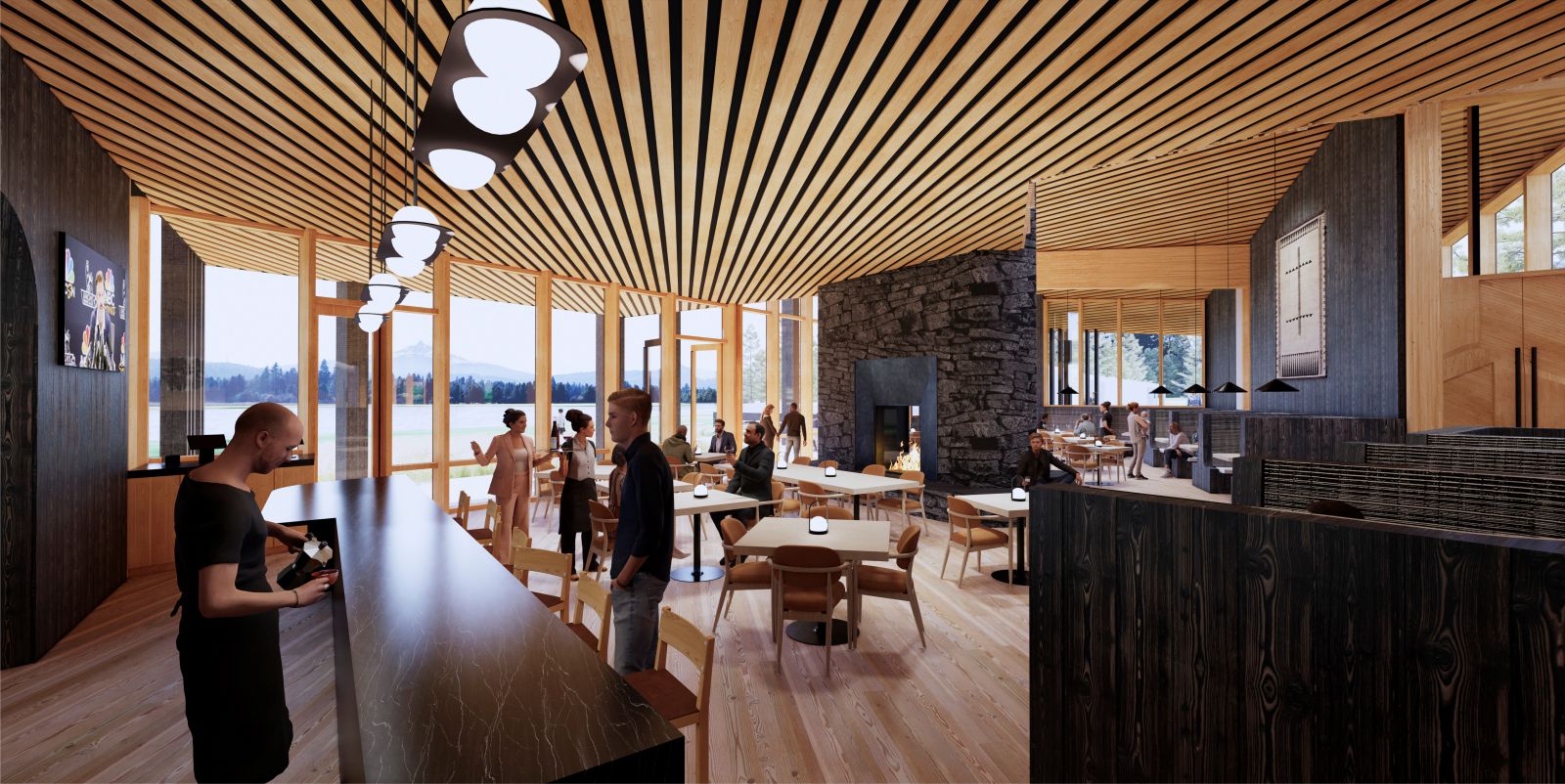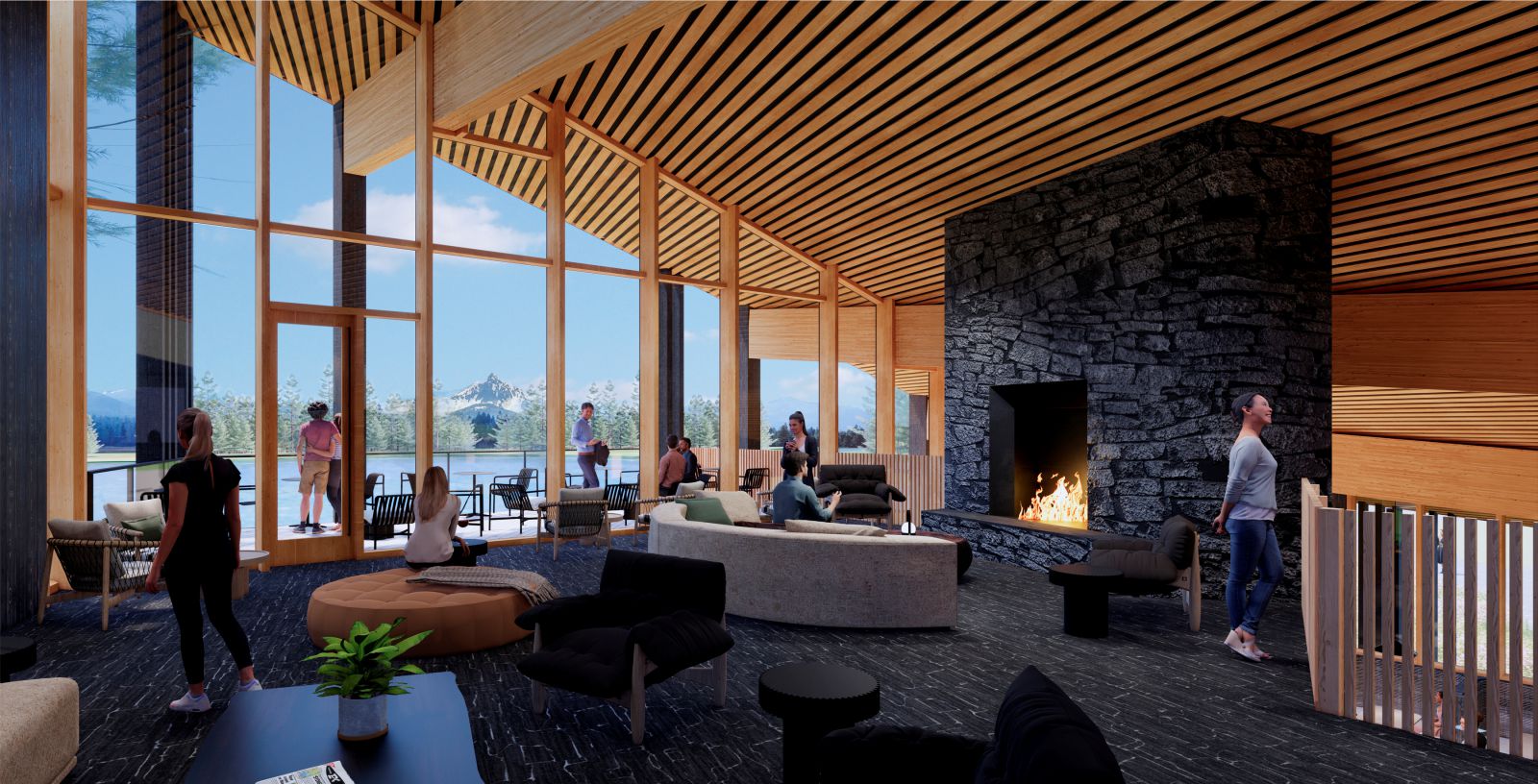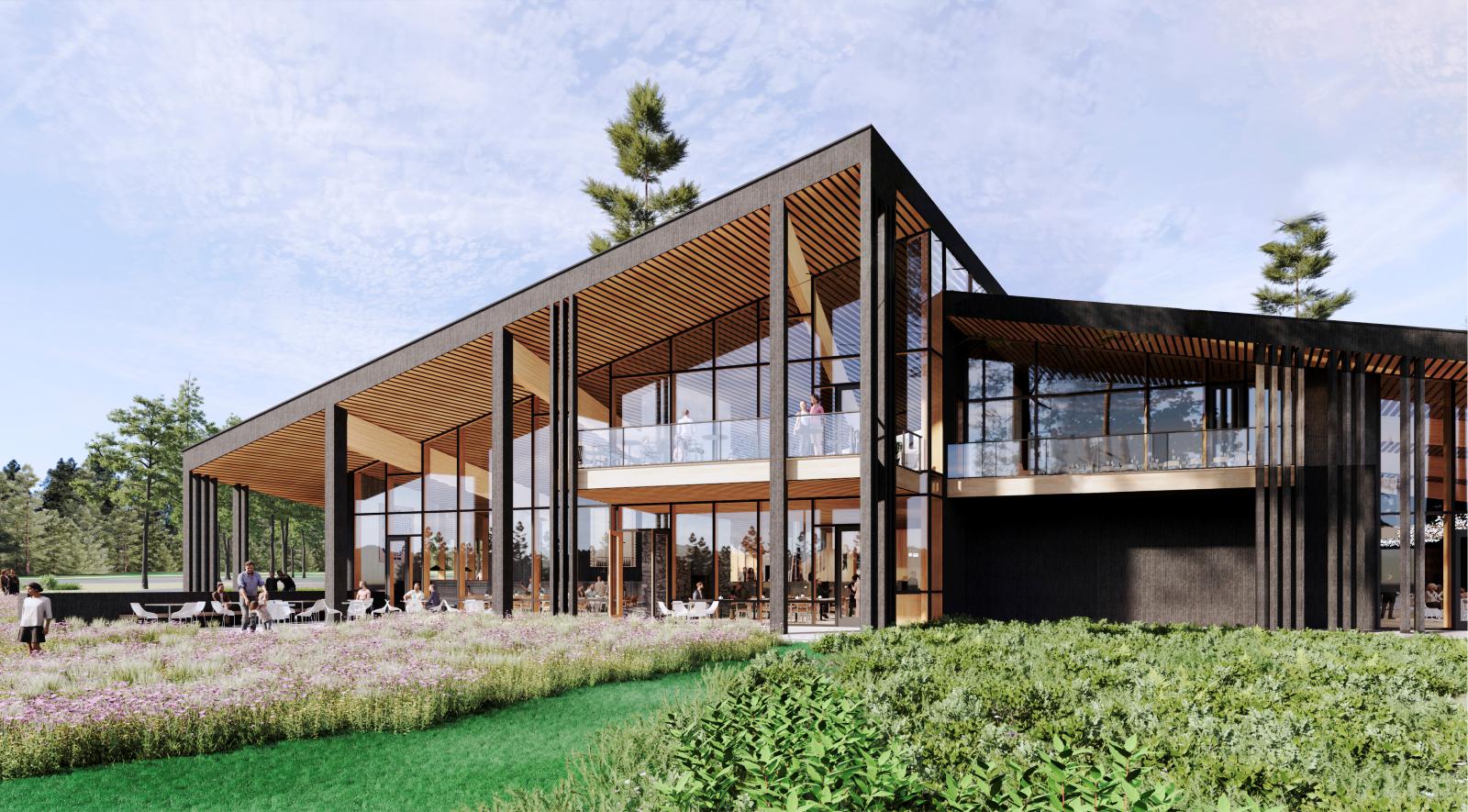Planned and built in the early 1970s, Black Butte Ranch sits at the base of The Three Sisters Wilderness in Oregon’s Central Cascades and is a gateway to the region’s high desert from the Central Willamette Valley.
The 1,800-acre site is a home for year-round residents and a popular vacation destination. As one of the Ranch’s original structures, the Lodge’s iconic 1970’s architecture made it beloved by many, including the Hacker design team.
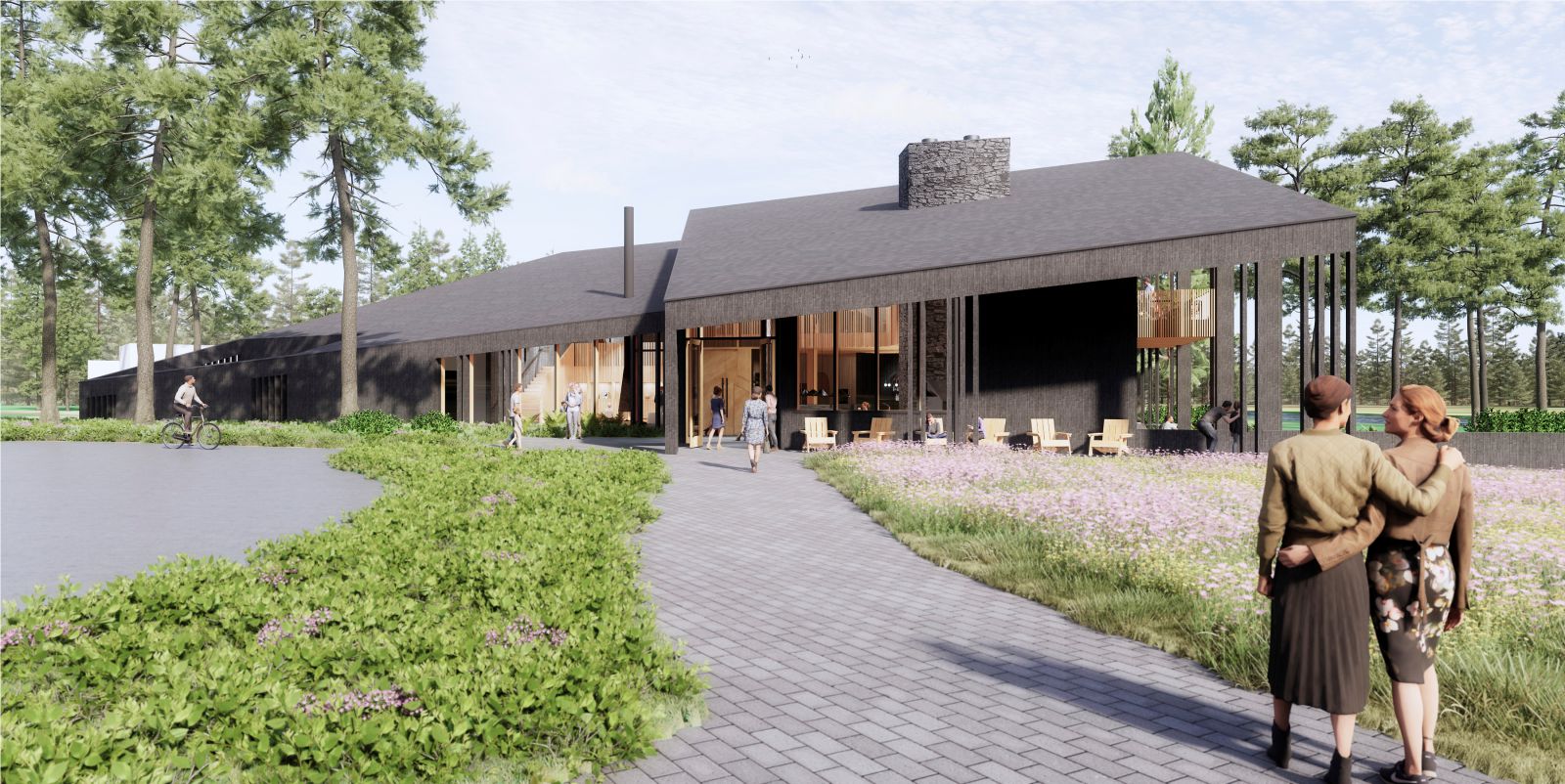
Hacker’s analysis found accessibility issues, aging mechanical systems, and an outdated layout, making a renovation impractical. After the decision for new construction was made, Hacker began an extensive year-long outreach process to understand the community’s vision and priorities for its replacement.
Like Hacker’s work on other parts of the Ranch, the new 28,000-square-foot structure (21,000-square-foot interior plus a 6,000-square-foot exterior deck) aims to honor and evolve the design language of the original ranch buildings while elevating the experience of the surrounding landscape through the careful framing and layering of views and a sensitive interpretation of regional materials and forms.

The interior celebrates the ranch tradition of highlighting wood through its exposed structure and finishes, using contrasting tones of native wood species to create a sense of both warmth and openness. The entire space is set around a uniquely textured double-height stone fireplace, stitching the nostalgia of the old lodge back into the new.
The restaurant booths appear to be carved away in the same way the nearby Metolius River has carved pools into the underlying lava flows. As much of the wood from the original lodge as possible has been salvaged to create guard rails, screens, furniture, and wall finishes.

This connection also extends to the outside where an established pine tree on the site could not be saved so it was transformed into custom tabletops for the restaurant and bar. The exterior is clad in Shou Sugi Ban (charred cedar), a traditional Japanese wood treatment that maintains the weathered look of the previous building while providing additional resistance to insects and fire.
This focus on local resources is also visible in the landscape design, which uses drought-tolerant native plants, encouraging habitat creation and celebrating the surrounding environment. Building materials will be sourced regionally, adding to the Lodge’s unique architecture while reducing transportation impacts and boosting the local economy.

The new building will include twice the square footage of the existing Lodge and is divided into three main sections: public spaces including the 70-seat Lodge restaurant and bar, 12-seat Fireside lounge, 50-seat second floor Aspen lounge, deck, and bar, 16-seat Ponderosa private dining room, and outside lounge.
The Three Sisters private event area with a large, 210 seat capacity event room (divisible into two distinct event spaces, Faith and Hope), large dressing room, and Charity meeting room; and a state-of-the-art kitchen with expanded catering services, centrally located to serve the needs for the entire the new building and serving as the catering kitchen for all venues on the ranch. Source by Hacker Architects.

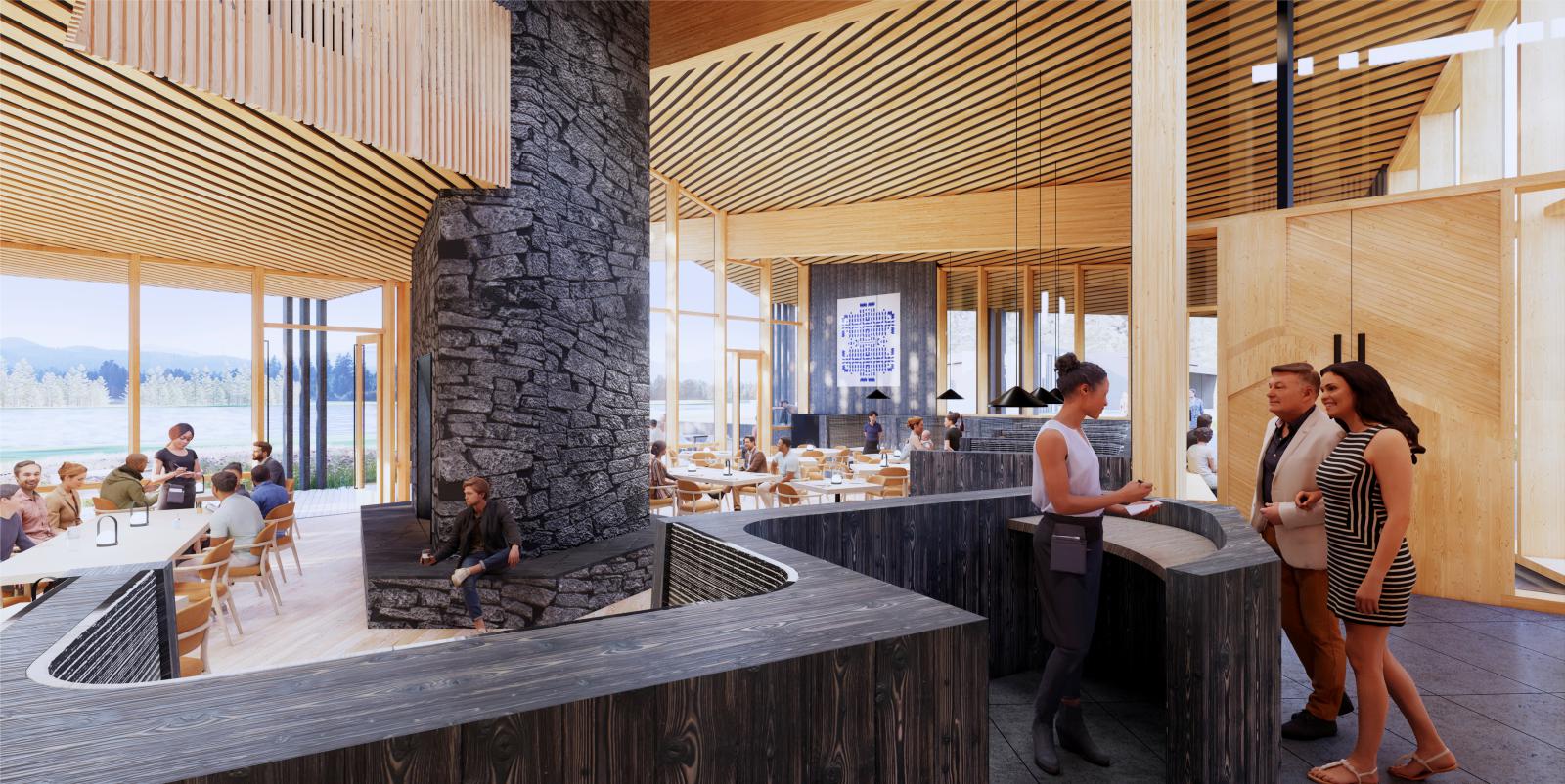
- Location: Sisters, Oregon, USA
- Architect: Hacker Architects
- Design Principal: Corey Martin
- Interior Design Principal: Jennie Fowler
- Project Manager: Nick Hodges
- Project Architects: Scott Mannhard and Brendan Hart
- Architectural Design Team: John Dalit, Jake Freauff, Matthew Sugarbaker, and Charles Dorn
- Interior Designer: Mayumi Nakazato
- Contractor: Kirby Nagelhout
- Landscape: Walker Macy Landscape Architecture
- Kitchen Designer: Bargreen Ellingson Restaurant Supply and Design
- Civil Engineer: Harper Houf Peterson Righellis Inc. (HHPR)
- Structural Engineer: Madden & Baughman Engineering Inc.
- Mechanical and Plumbing Engineer: PAE Consulting Engineers
- Electrical Engineer: PAE Consulting Engineers
- Lighting: Luma Lighting Design
- Acoustical Engineer: Listen Acoustics
- Year: 2021
- Images: Hacker Architects, Courtesy of Cameron Macallister Group
